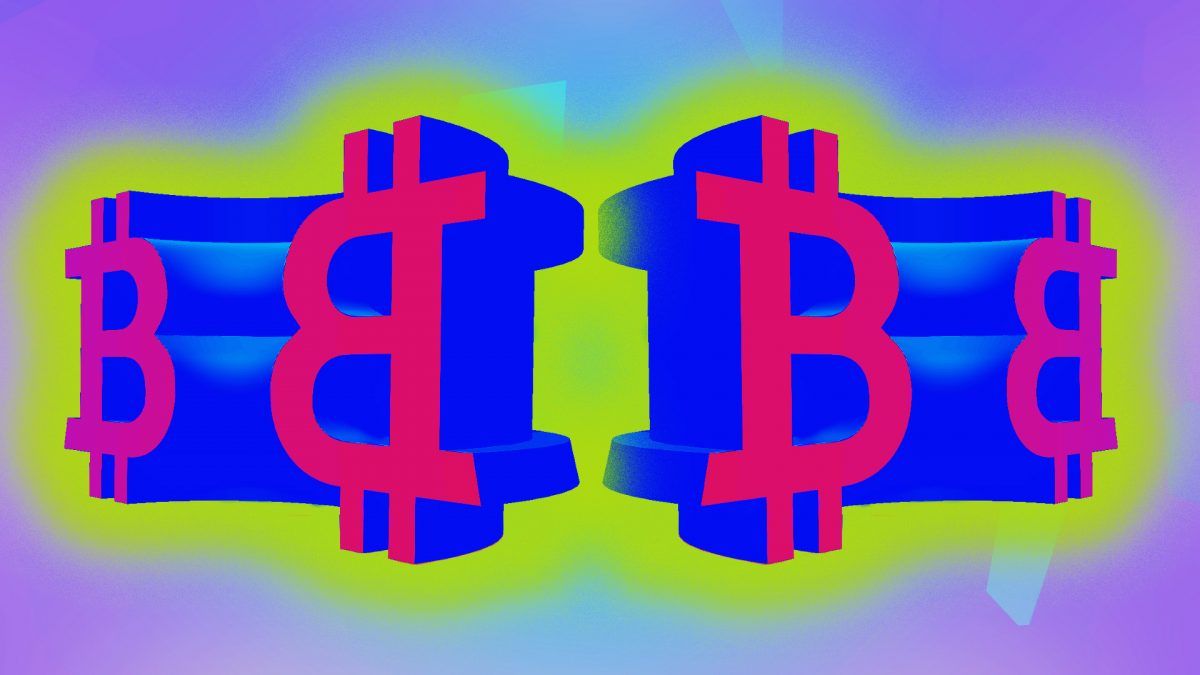What can the first BTC futures ETF bring to the encryption market?
Author | Qin Xiaofeng
Editor | Hao Fangzhou
Produced | Odaily

according toAuthor | Qin XiaofengEditor | Hao Fangzhou
according todocument"New York Times"
According to reports, the world's first Bitcoin exchange-traded fund (ETF), ProShares Bitcoin Strategy ETF, will be listed on the NYSE Arca Exchange on Tuesday local time in the United States under the trading code BITO. (Note: NYSE Arca is the second largest electronic stock exchange in the United States, specializing in ETF, ETN, ETV listing business.)
SEC official website
document
According to reports, the asset management company ProShares submitted an application for a bitcoin strategy ETF this summer and was approved by the SEC last Friday (October 15); however, the ETF is not backed by physical (spot) bitcoin, but based on Bitcoin futures contracts are constructed with a management fee of 0.95% per annum.
In addition to ProShares, several other public companies, Mike Novogratz's Galaxy Digital and Cathie Wood's ARK Invest, also plan to apply to launch similar ETFs in the coming weeks.
Since 2013, encryption companies and fund companies have relentlessly submitted ETF applications to the SEC, and have repeatedly failed. Until today, the Bitcoin ETF finally came out, which not only boosted the confidence of the encryption market, but also provided a new path for the traditional securities market to invest in cryptocurrencies."However, in addition to the "spiritual level", what else can the advent of Bitcoin ETF bring to the encryption market?"
(1) The difference between futures ETF and spot ETF
ETF, the full name is Exchange Traded Fund, that is, exchange traded funds. In traditional markets, ETFs can track a single commodity price (such as a gold ETF), or they can track a diversified portfolio of securities (such as the S&P 500).
ProShares' bitcoin strategy ETF tracks only a single bitcoin price. However, it should be noted that what it tracks is the futures price of Bitcoin, not the spot price, so it is called "futures ETF".
BITO, the ProShares Bitcoin Strategy ETF, will primarily invest in Bitcoin futures contracts and will not invest directly in Bitcoin.
There are several differences between futures ETFs and spot ETFs:
One is the price level. Futures players should have experienced that the futures price is not always equal to the spot price, sometimes it may be a premium (that is, the futures price is higher than the spot price), and sometimes it may be a discount; and, when the market is strong/panic, the premium, discount The ranges are also different, which may lead to the loss of ProShares' bitcoin futures ETF income.
The second is the cost level. Futures-based ETFs need to adjust their positions when the expiration date comes, that is, sell the near-term contract and buy the forward contract. However, there is a price difference between the two, and the forward price is often higher than the recent price. Positions are reduced, and ETF returns are reduced. "Funds will sell expiring contracts at relatively low prices and buy later maturities at relatively high prices. In short, the fund will 'renew' indefinitely without actively Close the position."
Bitcoin spot ETFs do not have rebalancing costs. However, spot ETFs usually need to buy bitcoin spot, which may also lead to custody fees.
The third is the transaction level. Spot ETFs are usually physical-backed commodity ETFs, which usually need to directly hold physical assets, and the product size is not affected by the liquidity of the futures market; Bitcoin futures ETFs are non-physical-backed commodity ETFs and do not directly hold Bitcoin Instead of real assets, they hold futures derivatives related to Bitcoin to achieve the purpose of tracking prices or indexes.Take the ProShares Bitcoin Strategy ETF as an example, users only need to buy and sell stocks in the securities market with fiat currencies, and the operation is simple; ProShares will directly put these fiat currencies into the contract trading platform as margin to buy Bitcoin futures contracts. It should be noted that according to the information disclosed so far, the ProShares Bitcoin strategy ETF only has long positions, that is to say, it can only go long, not short; in addition, after the user purchases the ETF, he needs to pay a management fee at an annualized rate of 0.95% per year .
(2) ETF is not necessarily the optimal solution
After the ProShares Bitcoin futures ETF was passed, many people may have doubts: why is it a futures ETF instead of a spot ETF.
One explanation is that futures are more compliant and regulated than spot. In the SEC's view, bitcoin spot trading takes place in venues that are not regulated at the federal level, while futures trading takes place on the Chicago Mercantile Exchange (CME), which is regulated by the Commodity Futures Trading Commission.
(Odaily note: ProShares chooses CME futures price as the tracking object)
Of course, this explanation is a bit far-fetched, after all, many regulated spot platforms (Coinbase, Kraken, Gemini, etc.) have been born in the United States. However, in terms of popularity, native encryption platforms such as Coinbase may not be as good as CME.
After ProShares, several other public companies, Mike Novogratz's Galaxy Digital and Cathie Wood's ARK Invest also plan to apply to launch similar futures ETFs in the next few weeks; several other companies have submitted applications for spot ETFs, such as cryptocurrency funds Management firm Grayscale plans to convert its Bitcoin Trust (GBTC) into a Bitcoin spot ETF. However, there is currently no sign of the SEC approving the above application.Sui Chung, CEO of CF Benchmarks, said the launch of a bitcoin futures ETF may not hurt spot ETF applications. But on the other hand, he conceded, “If these futures ETFs go well, are sizable, and can satisfy investors’ demand for bitcoin through the ETF channel, then the SEC may say that demand has been met and we don’t need to authorize spot ETFs. "
In fact, even if the SEC does not approve other ETF applications, there is no need for the market to be disheartened. Because for users of the traditional securities market, ETF is not the only way to obtain Bitcoin risk exposure, and even ETF may not be the best way.
On the one hand, as mentioned above, there are many compliant trading platforms in the United States. If users want to buy Bitcoin spot, they can choose platforms such as Coinbase, while buying futures can consider CME and Bakkt. NBA Dallas Mavericks owner Mark Cuban said bluntly that he does not plan to invest in Bitcoin ETF or Bitcoin futures ETF, but directly buys BTC. However, this method does have certain thresholds for users outside the circle.
On the other hand, users can also purchase grayscale trusts on off-site platforms to obtain encrypted assets such as Bitcoin. This method has existed for a long time and is also a relatively common method before. In addition, users can also buy stocks of listed companies (such as MicroStrategy, Square and Tesla) that already hold bitcoins, thereby indirectly obtaining bitcoins; even, you can also purchase "Bitcoin Revolution Company" ETFs to indirectly obtain shares related to bitcoins. Stocks of listed companies related to currency.
(Odaily Note: Recently, the SEC approved Volt Equity to create a portfolio of "Bitcoin Revolution Companies", which hold large amounts of encrypted assets on their balance sheets, thereby providing retail investors with exposure to Bitcoin.)
All in all, ETF is not the only way for traditional financial users, and ETF is not the best path for investment.
(3) Market impact of ETFs
Although Bitcoin futures is not the optimal solution, it still has a certain impact and significance on the market.
For the traditional financial market, it provides a new way to enter encrypted finance. For the encryption ecology, ETF also justifies the name of the encryption market. With the emergence of more and more compliant encryption products, the confidence of traditional institutional investors and ordinary users in encryption continues to increase.
Many crypto people also expressed optimism about ETFs. Tom Lee, the founder of Fundstrat and a well-known bitcoin bull, said that the bitcoin ETF may attract more than US$50 billion in capital into the encryption market in the first year; It reached $1,800 after listing, so Bitcoin may reach new highs.
In addition, the approval of the Bitcoin ETF also provides an example for the final approval of other cryptocurrency ETFs. After approving the first bitcoin futures ETF, the SEC is likely to bring an ethereum-based ETF to the market, Grayscale CEO Michael Sonnenshein said.



